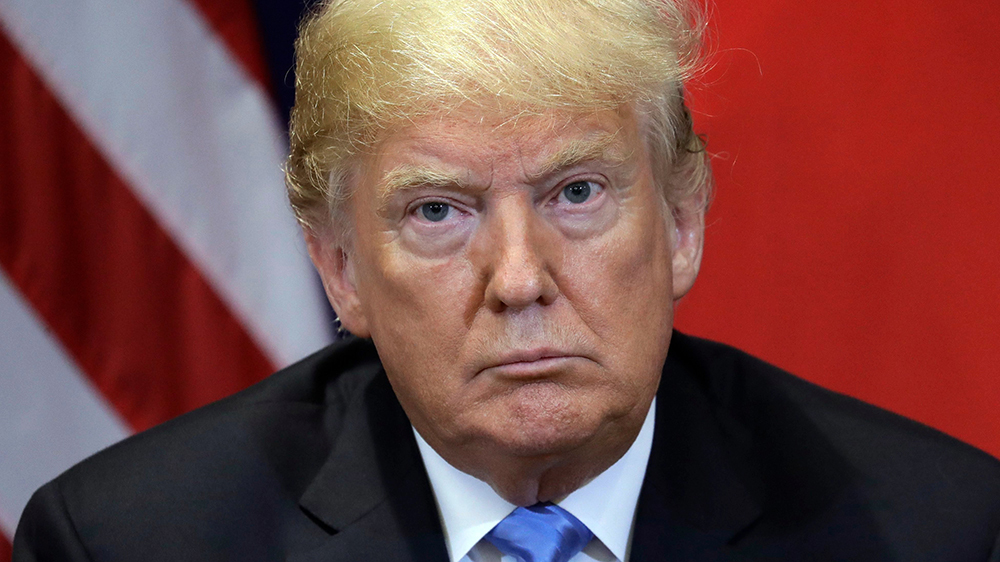The international oil benchmark, Brent crude, tumbled on Monday after the United States President, Donald Trump, told the Organisation of Petroleum Exporting Countries to “relax” as prices were “getting too high”.
Brent, against which Nigeria’s oil is priced, has risen by around 20 per cent this year, aided primarily by OPEC’s production cuts, as well as US sanctions on exports of crude from Iran and Venezuela.
Trump has frequently blamed high oil prices on OPEC while the US has become the world’s largest supplier thanks to shale output.
“Oil prices getting too high. OPEC, please relax and take it easy. The world cannot take a price hike – fragile!” Trump said on Twitter on Monday morning.
Brent crude fell by $2.34 to $64.78 per barrel at 6.30pm Nigerian time on Monday, having earlier risen to a 2019 high of $67.47 from the $53 at which it closed last year.
Saudi Arabia, OPEC’s de facto leader, had last week called for OPEC members and the group’s key producer allies to stick to pledges to cut output during the first half of 2019.
OPEC and 10 non-OPEC countries agreed in December to cut oil production by 1.2 million bpd effective from January for an initial period of six months to help balance the market and support prices.
Last week, President Muhammadu Buhari said Nigeria could consider a reduction in crude oil production in support of efforts to shore up the price of the commodity.
He said, “as a responsible member of the Organisation of Petroleum Exporting Countries, Nigeria was willing to go along with the Saudi initiative in limiting output so that prices would go up.”
OPEC asked Nigeria to cut its crude oil production by 3.04 per cent to 1.685 million bpd (excluding condensates) for the first half of 2019.
The 2019 budget proposal, presented to the National Assembly on December 19 by President Buhari, was based on oil production of 2.3 million bpd (including condensates), with an oil benchmark price of $60 per barrel.
The nation’s crude oil production including condensate fell to 1.999 million barrels per day in January from 2.081 million bpd in December, according to the Ministry of Petroleum Resources.
Earlier on Monday, oil futures rose on optimism over US-China trade talks and tightened supply, according to CNBC.
READ ALSO: Grades of Nigerian crude oil exports set to rise
Monday’s tweet marks the return of Trump’s criticism of OPEC, a staple of his second year in office and his early political messaging before running for president.
Trump has not tweeted about OPEC since early December, right before the producer group and 10 allied nations led by Russia defied his calls to keep pumping at high volumes.
The deal was reached after oil prices sank more than 40 per cent in the final quarter of 2018. The group first began curbing output in 2017 to end a punishing downturn but lifted the caps last June as oil prices hit 3½-year highs ahead of Trump’s sanctions on Iran, OPEC’s third biggest producer at the time.
The producers — and Saudi Arabia in particular — hiked output through November, when Trump surprised them by allowing some of Iran’s biggest customers to continue importing its oil as sanctions snapped back into place. The move contributed to the pullback in prices.
The Trump administration further disrupted global crude flows last month by blocking oil shipments to and from Venezuela, which mostly impacts shipments of heavy crude used by US refiners. The Iran sanctions and OPEC cuts have already tightened supplies of medium and heavy sour crude.
Goldman Sachs said on Monday that Brent crude could easily rise into a range of $70-$75 per barrel in the coming months but is likely to fall back “against an increasingly uncertain economic, policy and geopolitical backdrop.”












